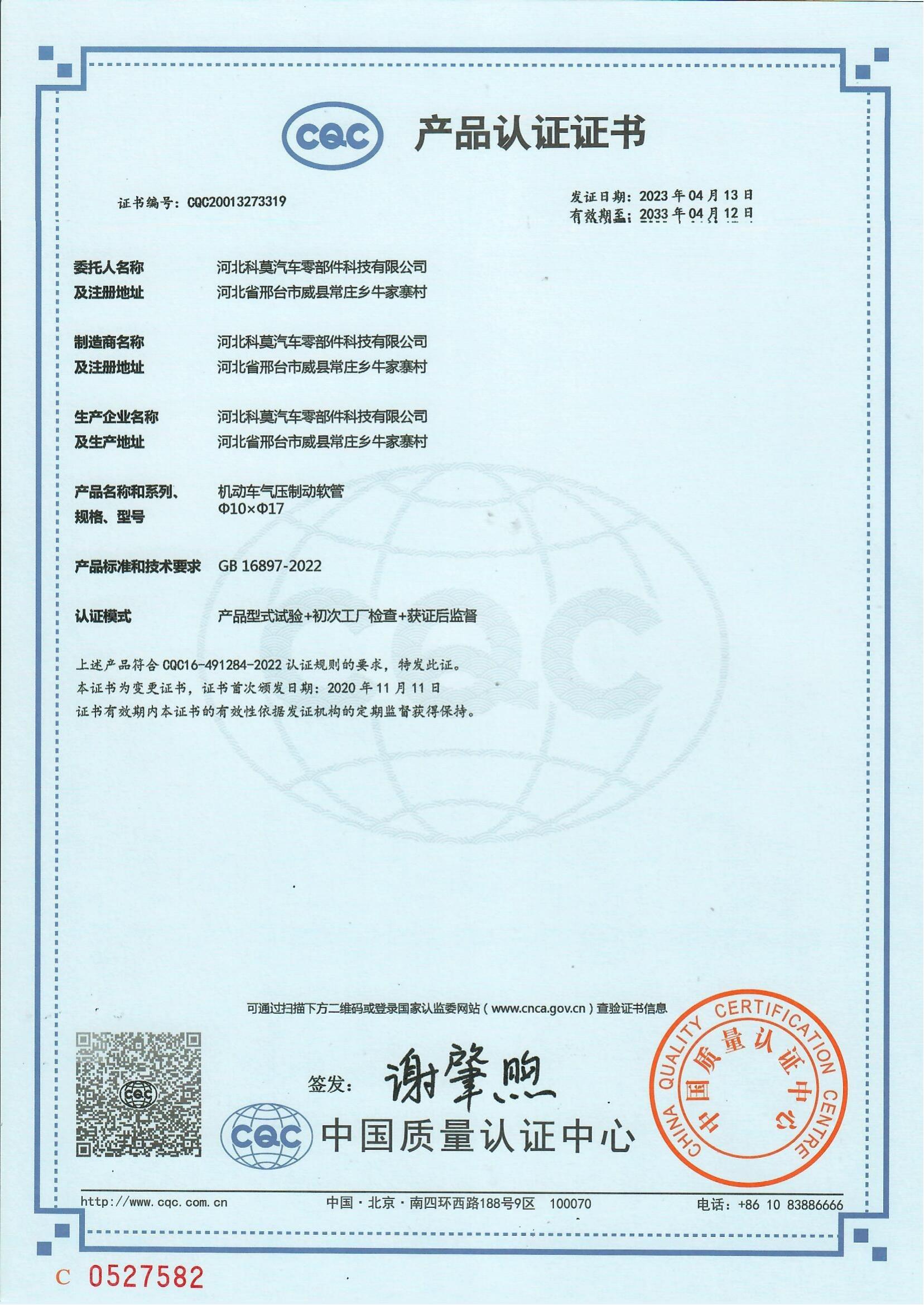Understanding Diesel Fuel Hoses and Their Importance for Efficient Vehicle Performance
ส.ค. . 12, 2024 13:02 Back to list
Understanding Diesel Fuel Hoses and Their Importance for Efficient Vehicle Performance
Understanding Fuel Hoses for Diesel Engines
Fuel hoses are essential components in the operation of diesel engines, playing a crucial role in transferring fuel from the tank to the engine's injection system. As diesel engines become increasingly common in various applications, including trucking, construction, and agriculture, understanding the specifications and maintenance of fuel hoses is vital for optimal performance and safety.
Diesel fuel hoses are specifically designed to handle the unique properties of diesel fuel, which can differ significantly from gasoline. Diesel fuel has a higher viscosity and contains different chemical compounds, making it essential that the hoses used for its transport are resilient and durable. The most common materials used to fabricate diesel fuel hoses include rubber, thermoplastic rubber, and fluoropolymer. These materials provide the necessary resistance to the corrosive nature of diesel and are designed to cope with various temperature ranges.
Understanding Fuel Hoses for Diesel Engines
Another critical consideration is the hose's diameter. The size of the hose affects the flow rate of diesel fuel to the engine. A hose that is too narrow may restrict fuel flow, causing performance issues such as reduced power or increased consumption. Conversely, a hose that is too wide may lead to a drop in fuel pressure, affecting injector performance. Therefore, it’s vital to match the hose diameter with the engine's requirements and the fuel system design.
fuel hose diesel

In addition to material selection and size, the length of the fuel hose is another important factor. A longer hose may introduce additional resistance, which can affect the efficiency of fuel delivery. It’s best to minimize the length of the hose while ensuring flexibility for installation and maintenance. This balance prevents undue strain on the hose, which could lead to premature wear and potential failure.
Proper installation and regular maintenance of diesel fuel hoses are also critical in ensuring long life and performance. Installing hoses without kinks or bends, using appropriate clamps, and ensuring secure connections will minimize the chance of leaks. Additionally, regular inspections for signs of wear, such as cracking, bulging, or discoloration, should be part of routine maintenance.
One issue diesel vehicle owners may encounter is the build-up of contaminants within the fuel system. Over time, particulate matter or water may accumulate in the fuel lines and hoses, which can lead to blockages or damage. Regular system flushing and using high-quality fuel can help mitigate these issues. Moreover, the use of fuel additives designed to clean diesel systems can also promote longevity and efficiency.
In conclusion, the role of fuel hoses in diesel engines is crucial for ensuring the effective transfer of fuel, contributing to overall engine performance and safety. By understanding the specifications, installation requirements, and maintenance of diesel fuel hoses, vehicle operators can prevent potential failures and enhance the lifespan of their fuel systems. As technology advances and environmental standards evolve, the materials and designs of fuel hoses will continue to adapt, but the fundamental importance of these components in the diesel engine ecosystem remains unchanged.
